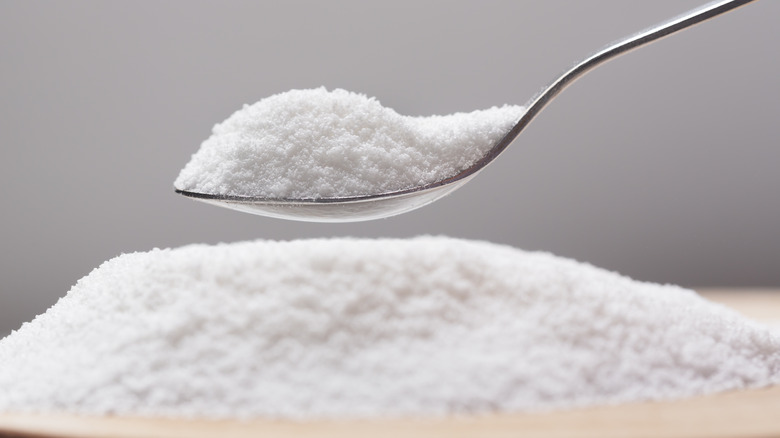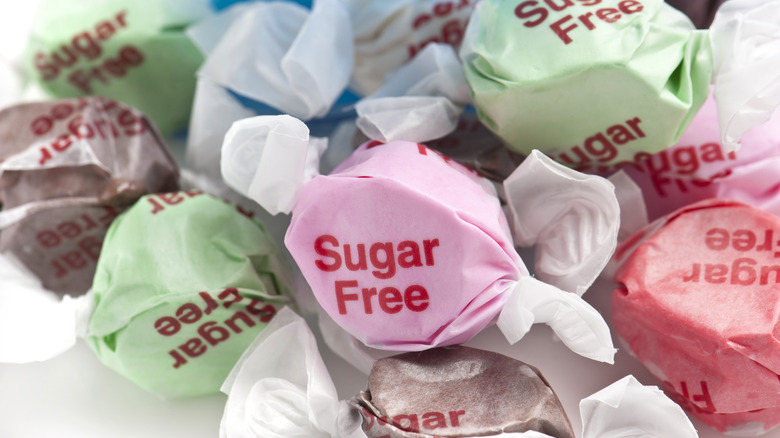What Are Sugar Alcohols And Which Foods Are They Found In?
Have you ever had a snack or drink that claims to be low-sugar or sugar-free and wondered why it still tastes so sweet? Chances are, the product contained what are known as sugar alcohols. This group of ingredients is a popular way for manufacturers to sweeten foods and beverages without adding extra sugar into the equation. Let's learn some more about this umbrella term and the substances that fall under it.
Sugar alcohols are a family of carbohydrates with a similar structure to both sugar and alcohol, though they are not alcoholic. For this reason, they are able to give foods and drinks a sweet flavor while also having fewer calories and without contributing to the sugar content of the refreshments they are used in. You are likely familiar with the names of many sugar alcohols already, including xylitol, erythritol, sorbitol, and maltitol as they are often found in products like sugar-free gum, zero-calorie and diet beverages, and even mouthwash and toothpaste.
How are sugar alcohols made and used?
Sugar alcohols come in many varieties and even occur naturally in certain fruits and vegetables. In these cases, they can be extracted from the produce by way of fermentation. For example, erythritol is often made by fermenting corn. In many other cases, they can be artificially produced by processing sugar and starch. The result of this process is a crystallized powder that can be added to a recipe just like sugar.
These ingredients are then used as sugar substitutes in products labeled as sugar-free, low-calorie, or keto-friendly, along with other buzzwords. Sugar alcohols can be used one at a time, but since they have a broad range of sweetness levels — from 25% as sweet as sugar to equally as sweet as sugar — some products may use more than one sugar alcohol at a time in order to achieve the perfect flavor for their recipe.
Are sugar alcohols safe?
Since sugar alcohols are a newer and less-familiar ingredient, the public has expressed some concern about their safety and how they may impact one's health. Research has concluded that the sugar alcohols currently approved for use in foods and beverages are generally safe, and can be healthy alternatives for many people. For example, people who have diabetes may benefit from the use of sugar alcohols as they do not raise blood sugar as much as traditional sugar, according to WebMD. Healthline suggests that these ingredients can also reduce tooth decay when compared to traditional sweeteners, which can encourage bacterial growth in the mouth.
While most people tolerate sugar alcohols well, some may be sensitive to them just as they may be sensitive to other everyday ingredients. There have been reports of gastrointestinal distress, particularly in those with existing digestion issues. Certain sugar alcohols can have a laxative effect, according to the Cleveland Clinic, especially when eaten in excess. You may be sensitive to one type of sugar alcohol but completely fine with other types, so be sure to listen to your own body and seek out the ingredients that work best for you.


